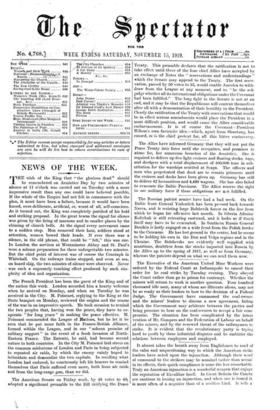NEWS OF THE WEEK.
THE wish of the King that "the glorious dead" should be remembered on Armistice Day by two minutes of silence at 11 o'clock was carried out on Tuesday with a more impressive result than any one could have believed possible. If the whole of the Empire had not felt in consonance with the plan, it must have been a failure, because it would have been forced, over-deliberate, artificial, or, worst of all, self-conscious. As it turned out, the King was completely justified of his bold and striking proposal. In the great towns the signal for silence was given by the firing of maroons and in smaller places by the chiming of church bells. At the signal every movement came to a sudden stop. Men removed their hats, soldiers stood at attention, women bowed their heads. If ever there was a silence, in the old phrase, that could be "felt," this was one. In London the services at Westminster Abbey and St. Paul's were a solemn preparation for these unforgettable two minutes. But the chief point of interest was of course the Cenotaph in Whitehall. On the railways trains stopped, and even at sea, on board ship, the two minutes of silence were observed. Never was such a supremely touching effect produced by such sim- plicity of idea and organization.






































